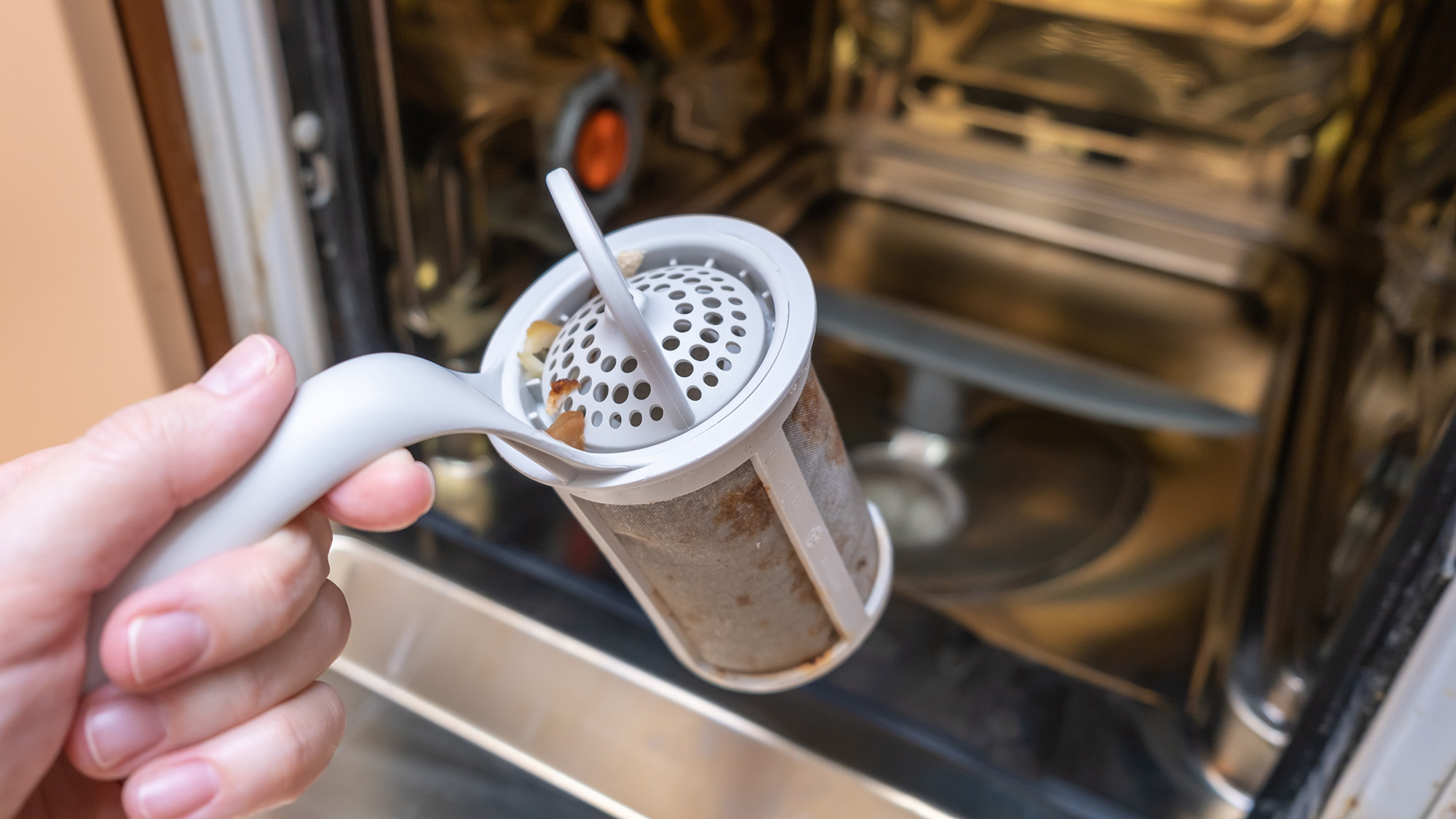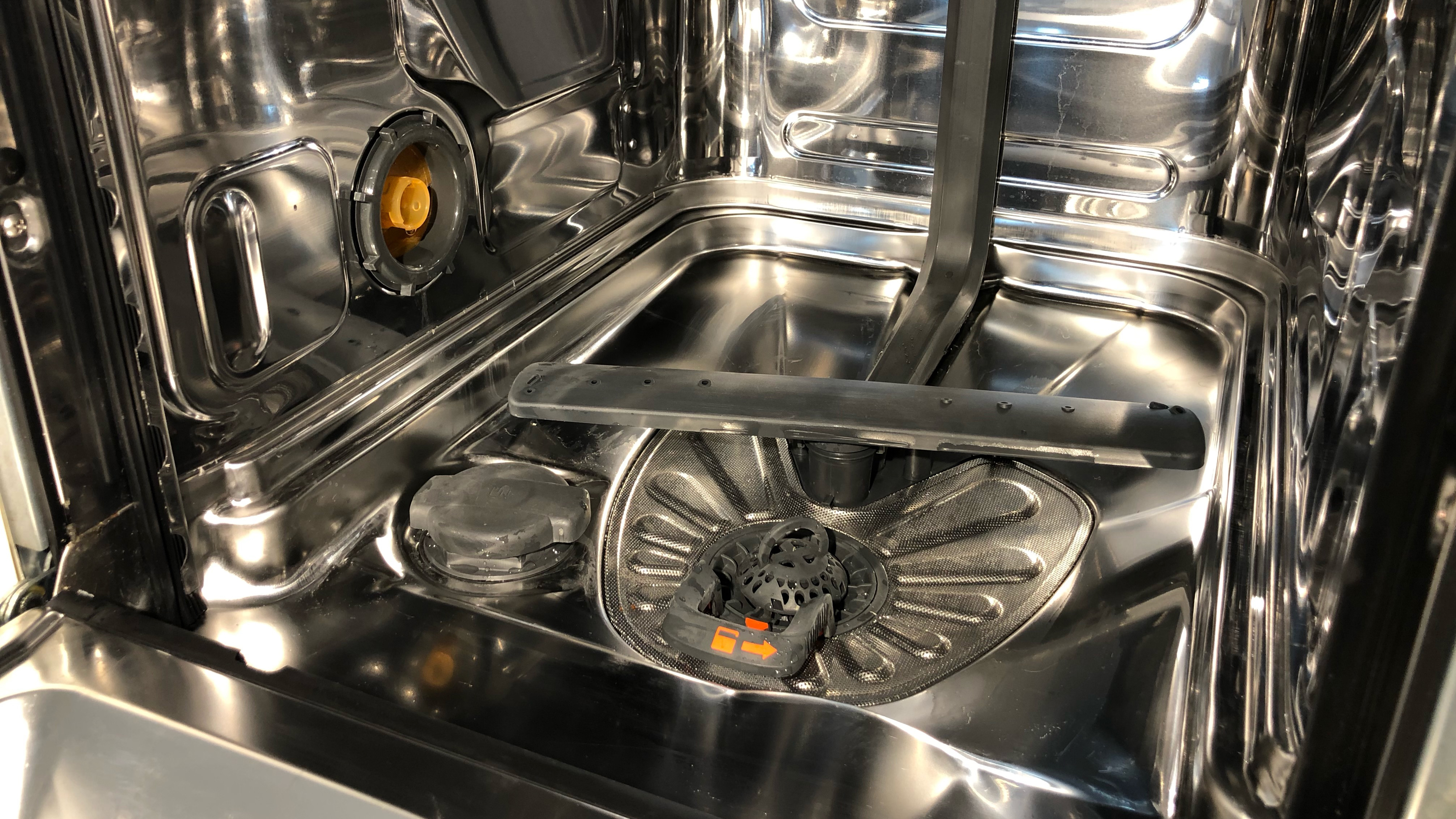Having one of the best dishwashers in your home ensures you save time and effort every day. But while a dishwasher is a cleaning genie itself, it still needs some extra care and attention to ensure it keeps working at its best.
If left to its own devices, without any additional cleaning or maintenance, a dishwasher can become blocked, causing it to underperform, and leaving you with a costly repair and the chore of having to rewash dishes by hand.
Here, we’ve called on dishwasher experts to share why a dishwasher needs cleaning and how often it needs a deep clean.
Why do you need to clean a cleaning machine?
“It’s a common misconception that your dishwasher is cleaned every time it is used because it’s cleaning the pans, dishes, and cutlery within it!” says Lee Gilbert, owner of Ransome Spares.
“However, most users fail to understand that any food waste and fatty deposits from the dishes that aren’t collected by the dishwasher filters end up in the internal system of the dishwasher.”
Philip Twigg, appliance expert at Reliant, adds, “If not cleaned out, food residue and suds can easily clog your dishwasher, making it difficult for the unit to dispense fresh water into the tub or to extract soiled water.”
And it causes another problem. “Food residue can become a breeding ground for bacteria and mold. Even the smallest of residues can result in bacteria, so it’s worth making sure it’s always kept clean!” explains Twigg.
Ken Doty, cleaning expert and COO at The Maids adds that this can cause issues with subsequent dishwasher cycles, “Food from previous washing cycles can be recirculated if your drain is blocked, causing your dishwasher to just transfer germs from plate to plate.”
In fact, according to Domestic and General, your dishwasher is the dirtiest appliance in your home.
How to tell when your dishwasher needs a deep clean?

There are a few sure-fire signs your dishwasher might need a quick (or lengthy) clean. “If you notice that your dishes aren’t quite as sparkly clean as you would expect post-cycle, then it’s likely that there’s a build-up of food that needs to be cleared away inside the dishwasher,” says Twigg.
“You’ll also know it’s time to clean your dishwasher if you notice it smells off whenever you open the door. This can be a result of food residue developing bacteria,” he adds.
Another problem, which indicates there’s dirt and residue blocking the drain, is if you notice the bottom of the tub is full of water after a cycle.
What will happen if you don’t clean your dishwasher?
Unfortunately, dishwashers aren’t self-cleaning, and if you leave them untouched, you’ll notice a change in their performance. “Food residue and other dirt may build up inside the dishwasher tub, making it difficult for water to move around and reach every inch of your dishes. This can result in unsatisfying results, with dishes left totally untouched!” says Twigg.
Food residue can also build up within the dishwasher’s drainage pipes, causing stubborn blockages. Twigg adds, “Left unchecked, these blockages could make it impossible for the unit to drain after a cycle, resulting in a leak. Food blockages can also damage the dishwasher drains, resulting in costly repairs!”
How often should you deep clean your dishwasher?

How often you deep clean you dishwasher will depend on how often you use it , but as a general guide, Marla Mock, President at Molly Maid, says, “You should clean your dishwasher at least once a month, to prevent any build-up and maintain its best performance.”
Apart from reducing odors and ensuring more efficient cleaning, regularly deep cleaning a dishwasher will also help prolong its life.
What cleaning tasks should you perform regularly?

There are some quick tasks that you can do regularly to help keep your dishwasher running smoothly. Twigg recommends checking your filters between each wash. “Making a habit of checking ensures that blockages won’t develop without you realizing it!”
He also recommends wiping down the tub every few weeks to ensure that small pockets of residue aren’t left untouched, eliminating the risk of bacteria. Doty suggests cleaning the door edges and seals weekly, and remembering to follow up with a monthly deep clean.
Quick tips to do each time you load your dishwasher

Although the dishwasher’s purpose is to clean your dishes, Gilbert recommends two simple tasks before loading your dishwasher.
1. Rinse the dishes under running water before placing them in the dishwasher. This will help remove any large pieces of food.
2. After each wash cycle, remove the filters, which you’ll find at the bottom of the dishwasher. Give them a rinse and remove any food residue, before placing the filter back in the appliance.
If you follow these tasks, Gilberts says you’ll prolong the life of your dishwasher and prevent smells and blockages. In fact, his own data reveals that over half of the dishwasher repairs his company is called out to could have been prevented if the owners had followed the two steps above.





